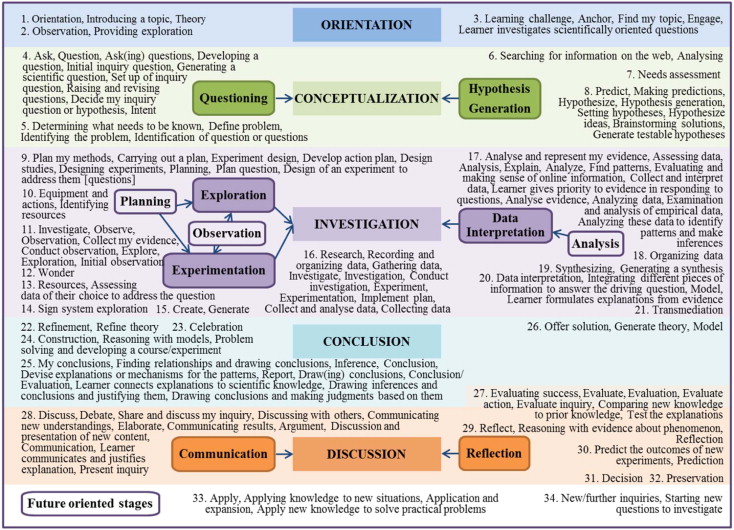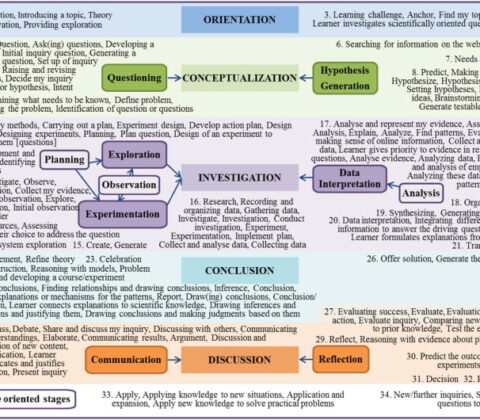Posts Tagged: learning design I


Learning with Curiosity
Inquiry-based learning has grown over the past years, and has become a forefront in introductory STEM fields. Broken down into different stages, students are encouraged to explore what peaks their interests within a topic. With the expansion of web-based learning, the inquiry method has grown due to the ease of access and availability of information. The learning approach goes through a cycle/number of stages that end in a deeper understanding of the topic at hand.
Beginning with introducing the material in a more general way, the students begin to think on what peaks their interests. The following stages of conceptualization and investigation are student lead. Researching (often times independently) about their chosen topic and following a more self-directed path compared to other approaches. Those who are teaching can help guide learners in this process, and become more hands-on during the conclusion and discussion stages. After the investigation, students present the information that they have gathered for a larger discussion. The reflection period after the initial learning is beneficial to both guide future lessons and for other students to learn more. I have attached an image going over all of the stages and what they can include depending on the level of assessment and learning.
When researching this approach, Montessori schools came to mind. In Montessori programs, students are encouraged to be more self-directed in their learning with guidance from the teachers rather than direct instruction. Being an example of an inquiry-based learning structure, these types of school are more common in the younger streams. This approach can be very beneficial in more advanced scenarios as well, especially with the usage of technology. The rise of web-based learning has provided learners with all of the tools necessary to find and research topics that might interest them. Different formats, such as animated videos like CrashCourse, go over niche topics in great detail. As well, providing the ability to communicate with others that are interested in similar topics.
Inquiry based learning would not be the best approach for our group’s topic. Due to the specific models/theories that we are teaching the learners, there is limited opportunity for them to properly conceptualize. As well, we want to encourage learners to work together and delve into how cooperative learning is. Inquiry based learning can be more advantageous to independent learning rather than group work.
Works Cited
Pedaste, M., Mäeots, M., Siiman, L. A., de Jong, T., van Riesen, S. A. N., Kamp, E. T., Manoli, C. C., Zacharia, Z. C., & Tsourlidaki, E. (2015). Phases of inquiry-based learning: Definitions and the inquiry cycle. Educational Research Review, 14, 47–61. https://doi.org/10.1016/j.edurev.2015.02.003